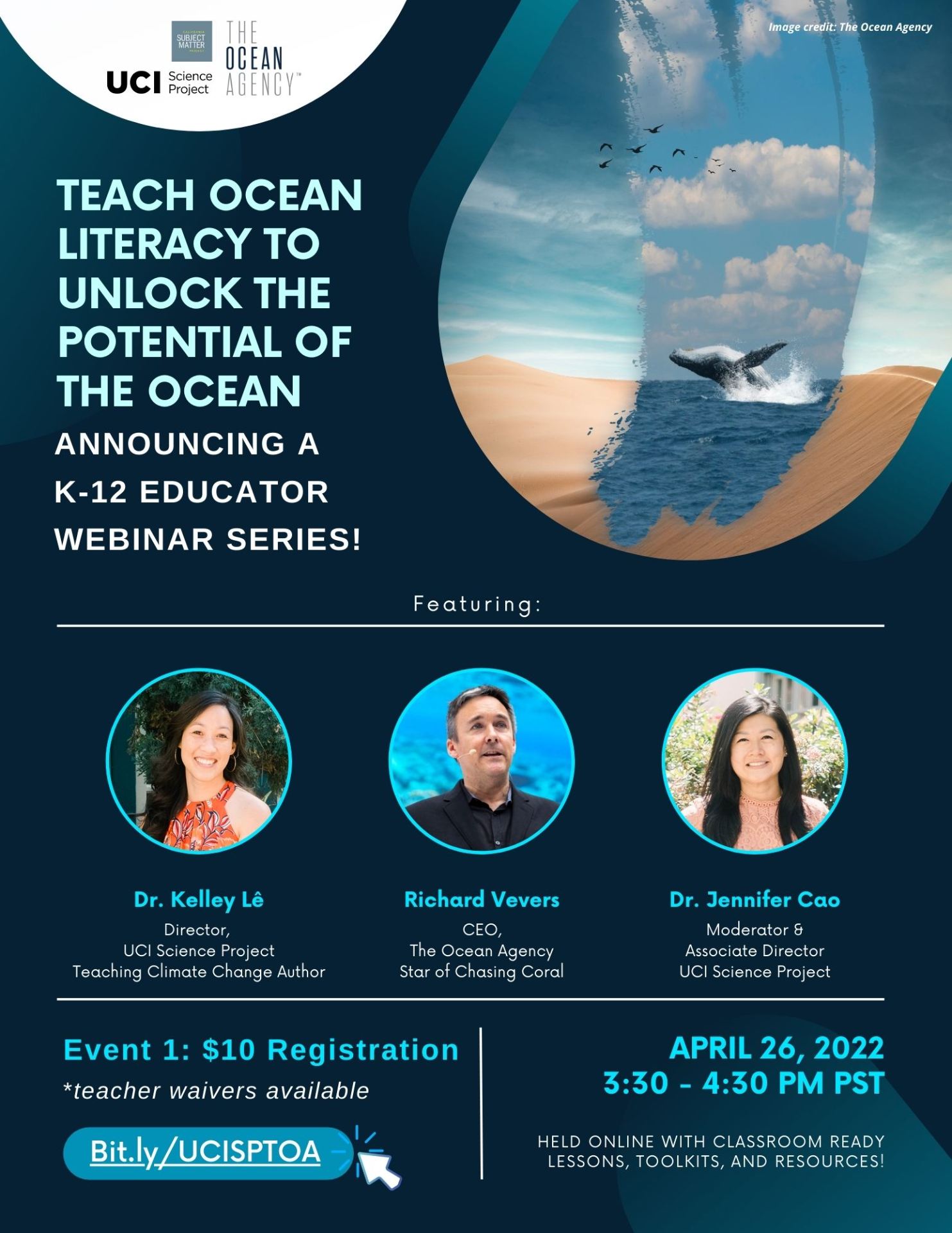
Teaching Climate Change
“Knowledge is only rumor until it lives in the bones.”
-African Proverb
Upcoming Events

UCI Science Project and The Ocean Agency Webinar
Teach Ocean Literacy to Unlock the Potential of the Ocean. Attend this upcoming K-12 educator webinar to hear from Dr. Kelley Le and Mr. Richard Vevers on ocean literacy. Participants will also gain access to one of a kind teaching resources and toolkits and hear about more upcoming opportunities!

Aquarium of the Pacific PD Event
This is a professional learning event for secondary science educators looking for meaningful ways to teach climate change to activate student agency through NGSS. This is an in-person PD event at the Aquarium of the Pacific. Parking and admission fees are covered and participants will also receive resources and Dr. Le’s new book.
Register at: Bit.ly/LeGCC22

Cabrillo Marine Aquarium PD Event
This is a professional learning event for secondary science educators looking for meaningful ways to teach climate change to activate student agency through NGSS. This is an in-person PD event at the Cabrillo Marine Aquarium. Parking and admission are covered for all participants.
Register at: Bit.ly/LeGCC23
Featured Publications
By Dr. Kelley T Le – Published by Routledge, 2021
Nearly one-third of the secondary science standards relate to climate science, but teachers need design and implementation support to create empowering learning experiences centered around the climate crisis. Experienced science educator, instructional coach, and educational leader Dr. Kelley T. Le offers this support, providing an overview of the teaching shifts needed for NGSS and to support climate literacy for students via urgent topics in climate science and environmental justice – from the COVID-19 pandemic to global warming, rising sea temperatures, deforestation, and mass extinction. You’ll also learn how to engage the complexity of climate change by exploring social, racial, and environmental injustices stemming from the climate crisis that directly impact students.
By anchoring instruction around the climate crisis, Dr. Le offers guidance on how to empower students to be the agents of change needed in their own communities.



